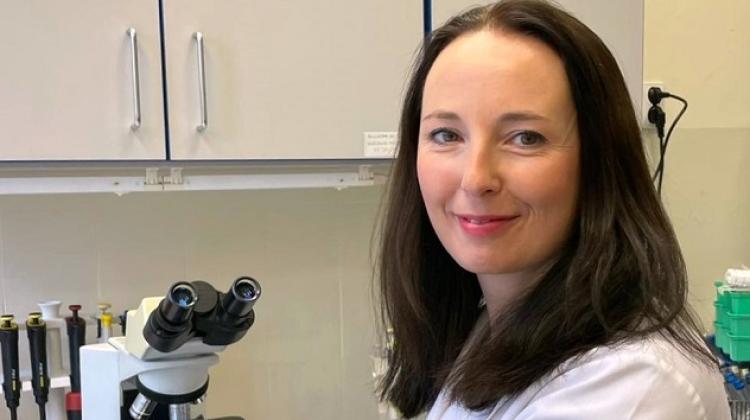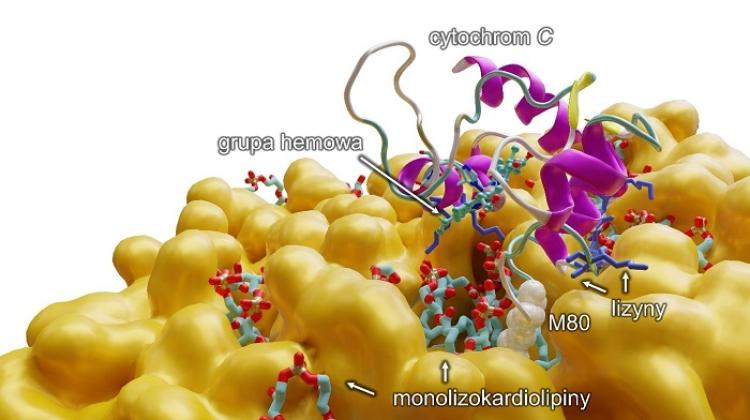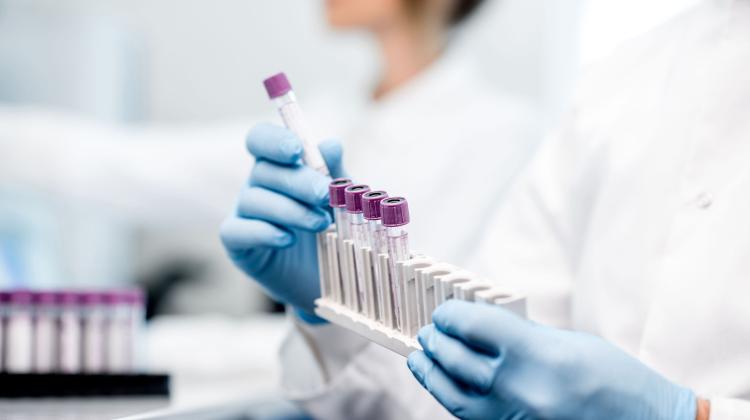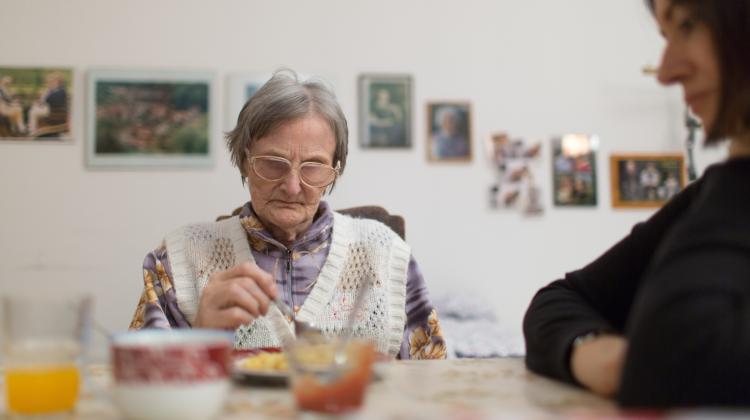Acting President of the Medical Research Agency: For the first time in history, we have the opportunity to respond to global biotechnology trends
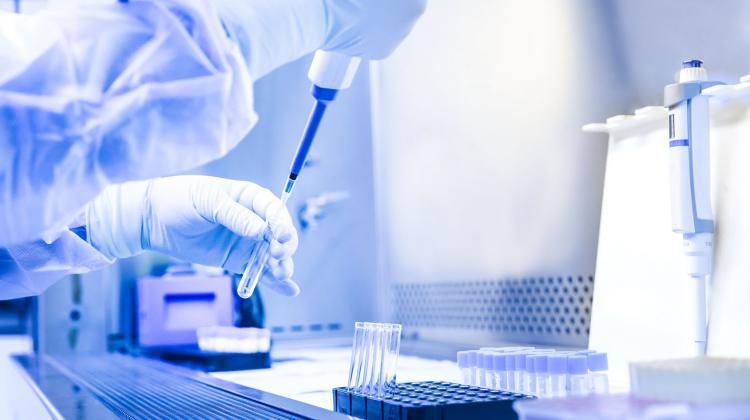 Photo: Fotolia
Photo: Fotolia
Thanks to the Medical Research Agency, for the first time in history we have the opportunity to respond to global biotechnology trends, believes acting President of the Medical Research Agency, Radosław Sierpiński. The organizational stage is behind us; now substantive work begins; the first competitions launch in September, he announces in an interview with PAP.
PAP: The Medical Research Agency is a relatively new entity, it was formally established in the spring of this year. What is the stage of its creation?
Radosław Sierpiński: The Medical Research Agency has been on the medical market for less than half a year. The key reason for its establishment was a certain gap in the Polish health care system and Polish science in the field of biomedical sciences related to clinical trials.
In the case of engineering sciences, a product prototype is created, followed by quick implementation, giving the possibility of mass production and sales. When it comes to medical sciences, for example innovative drug technologies, medical equipment or diagnostic and therapeutic procedures, scientists often create a prototype, and then there are no funds and appropriate conditions to conduct clinical trials and implement new solutions.
The Medical Research Agency has been established to eliminate the problem of lack of funds for clinical trials that have not yet had a dedicated funding stream. The beneficiaries of our activity will be patients.
The last six months have been an intense period. We managed to organize the institution based on competent staff. We have an office, we employ 25 people. Pursuant to the Act, the Council of the Medical Research Agency has been appointed. Its members include world-class scientists from abroad. We have substantive work ahead of us, including competitions, spending funds, creating the medical research market in Poland, supporting innovative Polish inventions.
PAP: When will the agency announce the first competitions?
R.S.: I would like us to announce the first competitions this September. We have an intensive dialogue with the scientific community about their needs. After all, the agency is here to help scientists and develop technologies. The call for applications for the competition will start in September and continue for at least six weeks. We will settle the competition at the end of the year. We will start financing in January 2020.
PAP: What budget for the Medical Research Agency`s operations can we expect?
R.S.: We will start financing in 2020, when clinical trials will be supported with PLN 265 million from the National Health Fund budget.
PAP: PLN 265 million is a transfer from the National Health Fund to the agency; what about other funds, for example from the state budget?
R.S.: Funds from the state budget in the amount of nearly PLN 100 million that will be available to the agency next year will be allocated, among other things, to innovative scientific activities. This involves specific ideas for scientific projects in the field of immunotherapy, artificial intelligence in medicine, cardiology or oncology and other key fields for the development of medical sciences in Poland. We will also support innovative technologies that are ready in our country but require funding. We are also talking about new medicinal products from non-drug technologies.
PAP: You mentioned the international dimension of the agency in the context of the Council. With which foreign centres have you managed to establish cooperation with so far?
R.S.: This is a matter that we are extremely proud of. I must admit that reality has exceeded our expectations. We have built amazing cooperation with the United States. This inclides, for example, a leading US cancer center: MD Anderson, or the National Institute of Health (NIH) in Washington. We are starting talks with Stanford University and Harvard University.
Our recent meetings in Israel have also shown that there is a great will to cooperate there. A good ecosystem has been created in Israel. I`m talking about supporting start-ups and innovative technologies, we want to draw on that.
I hope that our last week`s UK visit with the Minister of Health Łukasz Szumowski, including the Medical Research Council (MRC), will also result in joint projects.
PAP: In the coming days, the agency will sign an agreement with the European Clinical Research Infrastructure Network (ECRIN); what does this mean for patients?
R.S.: ECRIN operates at the European Commission. Its task is to network all non-commercial research carried out in international cooperation. Unfortunately, for many years, Poland remained a blank spot on the ECRIN map, while other Central and Eastern European countries such as Slovakia, the Czech Republic or Hungary actively participated in it, which translated into a significant increase in the number of non-commercial trials in these countries.
Thanks to the commitment of the agency and the support of the scientific community, we have declared accession and have been formally accepted. We will complete the formalities during the Economic Forum in Krynica, as part of our panel on September 4, and I think that next year the first international non-commercial clinical trials will start in Poland. Until now, such trials could not take place due to the lack of this cooperation.
We want to join this network so that these trials can be carried out in Polish centres, and Polish patients have access to the latest technologies. Participation in the agreement will allow patients to participate in trials conducted by foreign centres without having to travel abroad.
PAP: The Economic Forum in Krynica will soon take place. Will the Medical Research Agency representatives be active at that meeting?
R.S.: Definitely. The forum is a place where we want to show the economic potential of clinical research, the research and development sector in health care and biotechnology. Poland has great scientific and research potential, which the agency as an institutional partner with a relatively large budget can support.
Board members of big American pharmaceutical companies have been invited to the forum. They will come to discuss the potential of clinical trials and Poland`s further role in this area with the Minister of Health, Deputy Minister of Science and ECRIN Director-General.
We will also present the Clinical Research Development Program prepared by the agency`s experts, illustrating the current state of clinical trials in Poland along with proposals for measures to be taken in the coming years, also in the legislative area.
PAP: What is the concept of changing the regulations concerning clinical trials?
R.S.: Minister Szumowski has recently entrusted us with coordinating the work of the Clinical Research Law team. The meeting of this team is planned in the next few weeks.
PAP: Are there any areas that indisputably need to be changed?
R.S.: Let`s wait for the final results of the team`s work, but I can definitely say that, for example, we need to change registration procedures, currently very time-consuming in Poland, which often deters investors. We should sort out the problem of insurance of certain non-commercial clinical trials. Legislation should certainly be reconciled with EU legislation, for example regarding Regulation 536 (the Clinical Trials Regulation - PAP). We will also look at the organization of bioethics committees to make this part of research work as efficiently as possible.
PAP: What is the level of interest of the scientific community in cooperating with the agency?
R.S.: The scientific community has been waiting for this type of solution for years. Many scientists come to us and say that they have projects, for which they have been looking for funding for years. They declare that as soon as we announce the competitions, they will be ready to take part in them.
For the first time there is a chance that in the field of broadly understood biotechnology - immunotherapy, innovative drugs - Poland will have a dedicated institution that will be able to respond to global trends.
Polish scientists often do something with a few years` delay in relation to the US or Western Europe, as a result of which we become a recipient of technologies, we buy them instead of creating them. It appears that centralised financing, gathered human capital, experts from around the country, will result in our scientists` participation in leading research.
The agency will be able to examine whether a given procedure will be profitable in Poland, whether it will be as profitable as in the US or Germany. The Medical Research Agency is the first agency in Poland that has access to broad, aggregated data from the Social Insurance Institution, Statistics Poland, the National Health Fund and the Ministry of Health.
Finally, we will have a full picture of the system in terms of direct and indirect costs and we will be able to perform deep system analytics that will allow decision makers, future health ministers, to make decisions based on hard data.
PAP: How are the relations between the Medical Research Agency and the National Centre for Research and Development? Some experts argued that these entities would be competitive in some areas. So which is it: a rough friendship or idyllic cooperation?
R.S.: The cooperation between the Medical Research Agency and the National Centre for Research and Development is very good. The centre operates with European money, it is a completely different pool of funds.
PAP: According to the law, under which the agency was established, it may also apply for EU funds.
R.S.: That is correct. I definitely want us to get out of the system silo. If we can operate beyond certain divisions, we will do it. The agency has slightly different assumptions than the National Centre for Research and Development, the research that is crucial to us is of little importance to them. I admit that I hope that with time the agency will take over some of the centre`s competences.
PAP: What will the Agency be like in, say, five years?
R.S.: The five-year perspective is rational. We would like it to be the time when we say "check", find out what the agency has changed in the image of Polish clinical trials.
We definitely want to become an important international player, a hub for clinical trials networking centres of clinical trials in Poland, based on a university and institutional infrastructure.
We hope that when it comes to the potential of non-commercial research, we will achieve a double-digit number. Now it is 1 to 2 percent of the total market; we want it to exceed 10%. We would like to build a public-private partnership between business and academic centres, so that Polish biotechnology, which in our opinion has great potential, can develop and become one of the leading innovative industries in Poland. (PAP)
author: Katarzyna Lechowicz-Dyl
ktl/ mhr/ jjj/ kap/
tr. RL
Przed dodaniem komentarza prosimy o zapoznanie z Regulaminem forum serwisu Nauka w Polsce.


